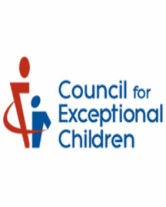Occasionally parents will object to behavior modification techniques used in the classroom because they see them as a form of bribery. Explaining the difference between behavior management and bribery requires a clear understanding of the steps involved in both. When a child is in the midst of a tantrum and an adult says, "Act right, and I will give you a cookie," that is bribery. Children learn that trick early. Every time someone tells them, "No," they go into action.
With behavior management, the emphasis is on prevention of inappropriate behavior through the initial rewarding of appropriate choices the student makes. The student is told before a problem arises what rewards and punishments are available to him. He is then told that he may decide which ones he wants to earn. This is no more a form of bribery than signing a contract to receive payment for a job when the job is completed satisfactorily. Relating the behavior management system to the work world makes it easier for parents to understand and accept.
The Initial Parent Meeting
The initial meeting between the parent and the teacher can set a productive tone. The teacher should come to the meeting with an outline of the behavior management plan used in the classroom, a sample point sheet, and a written list of materials the child will need to bring to school. Don't be surprised if, a week or two later, the parent requests another conference to review the point sheet and behavior management plan.These can be overwhelming to the parent in the beginning. Make sure to discuss any policies the school has about restraining students. Get written permission for this if it is allowed and may be needed. Also ask about any allergies. Some parents object to their children's eating items cooked in class. If the class cooks regularly, discuss this with the parent. Let the parent take the lead in how much is covered in the first meeting. Some parents have a lot of useful information to share with the teacher, while others are hesitant. Being prepared, positive, and professional is the best approach to take.
Examples of Parent/Teacher Communications
- Phone conferences -- two per semester.
- Daily point sheets. Write brief notes on them as often as necessary. Be positive.
- Weekly or biweekly "good behavior" notes. These can be preprinted with fill-in-the-blank type messages. Put them in work folders or staple them to the point sheet.
- Weekly or biweekly work envelopes. Put samples of the student's work in the envelope. Have the parent sign the front of the envelope. The student can return and reuse the envelope.
- Semester outlines for academic subjects.
- Special event notices.
- Face-to-face conferences.
- Report cards.
- Annual individualized education programs (IEPs).
It may not be necessary to do all of these things for all of the parents all of the time.These are merely suggestions that may help parents and teachers work more efficiently together.
General Guidelines
- Keep parents informed.
- Be as positive as possible as often as possible.
- Discuss appropriate choices students have made when at all possible, even when problems arise that need to be shared with parents.
- Keep a community resource file with names, phone numbers, and addresses of agencies, that may offer assistance to families in any way.
- Keep complete and accurate records. Share these records with the parents.
- Provide parents with the names of books and articles that might help them manage the child more easily at home.
- If problems arise between the parent and teacher, notify a supervisor immediately. Have another staff member present at all conferences. Keep copies of any letters and notes sent home.
Excerpted from Tough to Reach, Tough to Teach.















